African American Leaders
African American elected officials were often denied the right to serve. In 1888, Job Lawrence of Knoxville was elected to the school board. However, he was prevented from attending meetings by whites.
Other leaders were able to fulfill their duties. John W. Boyd was elected magistrate of Tipton County in 1878 and to the Tennessee House of Representatives from 1881-1885. Boyd served during a period when African American power in the state was gradually being reduced. Nevertheless, he remained an outspoken defender of African American rights.
Blacks who attempted to exercise their civil rights sometimes placed themselves in danger.
For example, in 1887 Representative Samuel McElwee who had introduced anti-lynching bills in the Tennessee General Assembly was later forced to flee the state. When McElwee attempted to give a farewell speech in Haywood County, white men told him he had five minutes to give the speech, and five minutes to leave the county. For more information about McElwee, click here.
Although African Americans rarely held state office, they influenced local politics by serving on city councils or on school boards. In this way African American leaders such as Robert Church in Memphis and James Napier in Nashville negotiated better treatment and services for African American residents.
Born a slave, Napier became a successful lawyer, real estate investor, and banker. He was elected for three terms on the Nashville City Council and was later appointed as register of the U. S. Treasury.
Robert Church Sr. became the first southern African American millionaire. In 1899 he built the city’s first African American park on Beale Street and in 1900 was the city’s delegate to the Republican National Convention.
His son, Robert Church Jr., continued his father’s charitable and political activity. He financed Lincoln Leagues, a network of groups that organized voter registration, voting schools, and paid poll taxes. In 1917, he helped create the Memphis branch of the National Association for the Advancement of Colored People (NAACP).
Robert Church Sr.’s daughter, Mary Church Terrell, went to college in Ohio. Afterwards she moved back to Memphis, and lived with her father for a year. He discouraged her from teaching in Memphis with its racial segregation. She taught in Washington D.C., and made her home there.
Terrell also became active in the women’s suffrage movement. She served as a member of the board of education, and was present at the founding of the NAACP. At age 89, she marched in a picket line calling for integration of lunch counters.
In the early 1900s, Henry Boyd, son of businessman Richard Boyd, managed the Nashville Globe, the city’s African American newspaper.
Callie House, of Nashville, led a movement for reparations (payment) for ex-slaves. She organized the National Ex-Slave Mutual Relief, Bounty, and Pension Association, and traveled across the South collecting signatures on a pension. The movement eventually failed when the federal government refused to consider the bill.
Picture Credits:
- Photograph of Robert Reed Church, Sr. Tennessee State Univeristy.
- Photograph of Samuel A. McElwee. This photo was taken in Nashville sometime between 1887 and 1888. Tennessee State Library and Archives.
- Photograph of John H. Boyd. This photo was taken in Nashville sometime between 1881 and 1882. Tennessee State Library and Archive.
- Photograph of James C. Napier. This photo was published in the work, Progress of a race by H. F. Kletzing in 1897. New York Public Library.
- Photograph of Mary Church Terrell. This photo was taken sometime between 1890 and 1900. Library of Congress.
- Photograph of Henry Allen Boyd. Tennessee State University.
- Photograph of Richard Henry Boyd. This photo was included in the book, Sermons, Addresses and Reminiscences and Important Correspondence, with a Picture Gallery of Eminent Ministers and Scholars by E. C. Morris. The book was published in Nashville in 1901 by the National Baptist Publishing Board led by R. H. Boyd. New York Public Library.
- Photograph of Robert Reed Church, Jr. Tennessee State University.
Confronting the Modern Era >> Racial Segregation >> African American Leaders >>
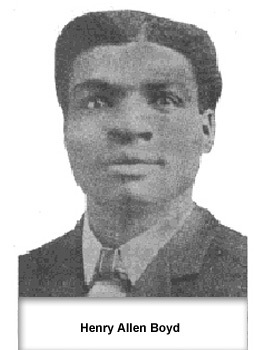
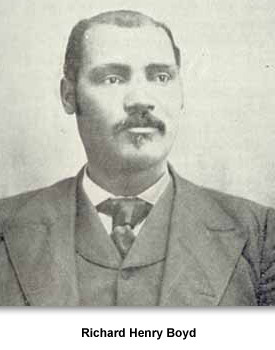
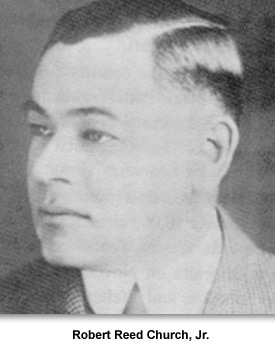
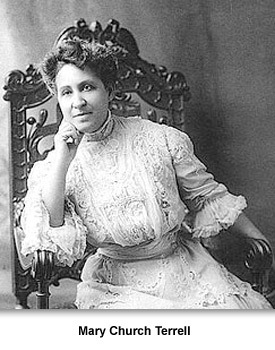
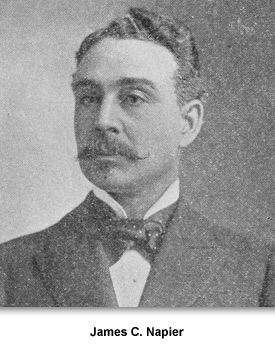
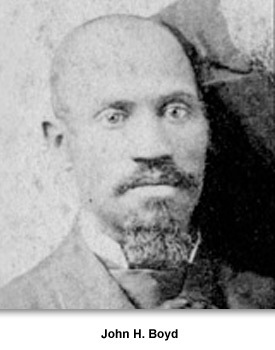
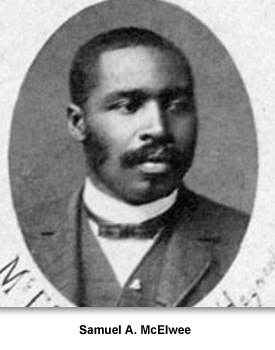
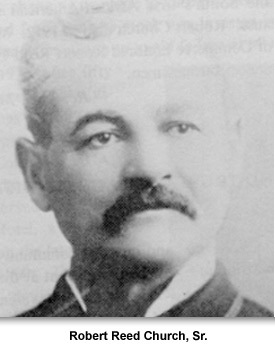
 Sponsored by: National Endowment for the Humanities
Sponsored by: National Endowment for the Humanities